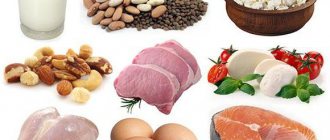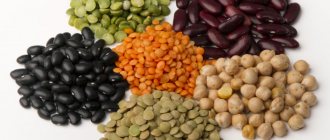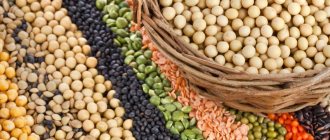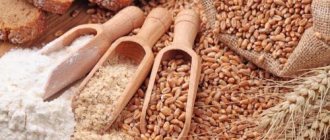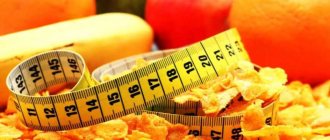If you decide to lose weight or build muscle, your body's protein needs increase dramatically.
Without a sufficient amount of proteins, the desired goals cannot be achieved. You know this and are actively leaning on protein. But, alas, a miracle does not happen: the weight stands rooted to the spot, and the muscles do not even plan to grow.
Most likely, the reason is not a lack of proteins, but their poor absorption by your body. So what are you doing that prevents the incoming protein from being completely absorbed? Specialists from Lara Serebryanskaya’s school of nutrition suggest understanding what affects protein absorption and working on mistakes...
Science experiment
Now it is definitely clear that it is possible to consume large amounts of protein. But what to do with the statement that its absorption in the human body in one meal is no more than 30 grams? It is necessary to study more deeply the studies conducted on athletes by American scientists, how their body processes protein at a time.
The essence of the experiment was that two groups of athletes were created who took protein after training. Each athlete used it differently, some 25 grams, some 50, 70 grams and after that they went to rest. After four hours, they were tested for protein absorption in the body. The results showed that those athletes who took more than 30 grams of protein did not increase protein synthesis, which means that more protein intake did not affect the restoration of muscle synthesis.
Mistakes That Cause Poor Protein Absorption
We've figured out the amount of proteins needed, now it's time to talk about protein absorption. As practice shows, it is at this stage that we make the main mistakes in nutrition.
Often the body does not have enough protein not because we eat little of it, but because our body cannot absorb protein as it should.
Experts from Lara Serebryanskaya’s school of nutritionists have compiled a rating of the main mistakes that interfere with the normal absorption of proteins. So take a look at it carefully:
Athletes hypothesis
Absorption is a very hot topic in gyms. A lot of opinions and questions arise on this topic among jocks. Why only 30 grams and no more? But everyone has their own answers. An analysis of this protein issue should be done.
For example, two people, one has 75 kilograms, the second 120 kilograms. Do these people have the same muscle mass and stomach size? Let's say one is actively working out in the gym, where muscle cells constantly require more protein, and the other sits at the computer all day, now do you understand the difference a little? This again raises the question, where did the hypothesis in taking 30 grams come from in this case?
How does digestion occur?
Any food that enters the human body is a complex process where hormones and enzymes are involved. The digestive system, when food arrives, begins its active work of digestion and assimilation. If you consume a huge amount of food, then the problem of obesity may arise.
There is another side, athletes who want to increase muscle mass should eat well and of high quality, but the consumption of food should be uniform. During the day you need to distribute your diet into 4 - 5 meals.
MISTAKE #2. REGULAR OVEREATING
There is nothing worse for protein digestion than throwing a disproportionate amount of food into your stomach. If you want to erase all your achievements in protein consumption once and for all, start eating infrequently and in large quantities. Excuses for a difficult daily routine, rush jobs at work and eternal busyness do not in any way affect the digestive activity of your stomach. He doesn’t really care how busy a person you are - the stomach digests exactly as much as the gastric juice and enzymes secreted by the pancreas are enough for.
Therefore, immediately forget about the option of eating half a kilogram of food 2 times a day. It is not for nothing that nutritionists and nutrition consultants promote a fractional diet (4-5 times a day), since it is under this regime that food is digested best and protein dishes, in particular. Train yourself to eat more often, but less, and everything will immediately improve.
Don’t know how to adjust your diet and start eating 5-6 times a day without compromising your figure? Then take a nutrition course.
Absorption in the body
When protein enters the stomach, it needs time to be broken down into amino acids. It follows from this that depending on the food, its digestion speed occurs.
What can I say, any athlete knows that if you take protein from sports nutrition, it takes time to digest, but what then can we say about food products, where the digestion process takes much longer. Take cottage cheese alone, which takes about six hours to be absorbed in the body, while meat is generally a multi-hour process.
Therefore, when you start your next meal, your intestines are still working to digest the previous meal. I wonder why the figure of absorption of 30 grams at a time appeared? Bodybuilders take it in huge quantities and feel great while gaining muscle mass, it just takes a longer time to absorb it.
MISTAKE #5. INSUFFICIENT AMOUNT OF WATER IN THE DIETE

Failure to comply with the correct drinking regime leads to many problems, including deterioration in protein absorption. Without the right amount of water, protein digestion becomes difficult.
Remember that a person should drink 30-40 ml of water per kg of body weight per day. In hot weather and increased physical activity, this amount increases by another 500-800 ml per day.
In this case, you need to drink water half an hour before meals and an hour after meals. Drinking water or other liquids during meals dilutes the gastric juices and thereby impairs the process of digesting food. Protein products are already difficult to digest, therefore, under unfavorable digestive conditions, the prognosis for the absorption of proteins will be very sad.
Do you want to protect yourself from such mistakes and unpleasant consequences? Then take advantage of the consultation of a nutritionist, whose course is aimed at prescribing the most balanced diet for you, and not forcing you onto yet another diet.
Degree and types of protein in the human body
- A complete source is animal products. It includes the following products: eggs, cottage cheese, milk, fish, meat, poultry.
- Incomplete - these are products of plant origin. This includes all different cereals, vegetables, legumes. One drawback in these products is the low amino acid content and low degree of absorption.
For example, rice contains a lot of protein, but its absorption in the body is approximately 40 percent, but protein from eggs is 95 percent absorption. Therefore, you need to choose the right foods for your protein diet.
Refutation of the 30 gram absorption theory
Almost all famous professional bodybuilders completely ignore this theory. They eat from 60-100 grams per meal, the results of their ideal body can be assessed with the naked eye. To consume large amounts of protein, you cannot do without sports protein supplements.
This is a protein powder that helps add the missing amount to your main food. They also have their own specific advantages in absorption. The most popular are milk (slow) and whey proteins (fast).
Side effects of eating protein
Taking sports protein may cause:
Disturbances in the gastrointestinal tract (gastrointestinal tract)
This side effect occurs in people who are lactose intolerant. Stomach upset most often occurs when consuming a gluten-like, slowly digestible substance such as casein, which has many contraindications.
Headache attacks
This is due to the ability of protein to reduce insulin levels. If headache and nausea accompany each intake of the product, it is recommended to supplement it with carbohydrates, for example, a banana.
Excessive dry mouth
Most often occurs when the amount of fluid used is insufficient. Each serving should contain at least 200 milliliters. Otherwise, in addition to dry mouth, stomach bleeding may develop.
How to build lean muscle mass
Basically, all muscle mass is built with the help of protein, that is, protein. However, do not forget about carbohydrates, which are fuel and provide incredible energy for hard and intense workouts aimed at increasing and growing muscle mass.
How much carbohydrates should I take? For every kilogram of body weight from 5-8 grams, every day. This will be enough to provide your body with energy and quick recovery after training.
To gain muscle mass, you need to consume 2 grams of protein per kilogram of weight per day. This norm can be obtained either in four or six meals, it all depends on a properly designed nutrition schedule.
By the way, it is not necessary to consume the same amount at every meal. For example, in the morning you can eat more carbohydrates, and in the evening more protein.
How much protein is absorbed?
Researchers who tested the effects of milk protein had the same idea. Subsequently, they developed and published studies in which they compared the digestibility and costs of the human body of protein varieties that were derivatives of the above-mentioned organic substances.
The primary goal of the experiments was to establish the leucine balance after the participants completed their consumption of different types of milk protein.
Leucine is a branched chain amino acid. Scientists administered it by injection, and did not forget to label it with radioactive isotopes in order to accurately monitor its effect on the human body.
The study involved 22 people; during the experiment, they were divided into four groups in order to study the rate of protein absorption. Each group took one of the following drugs:
- A certain amount of casein per person.
- One dose of free amino acids, which were supposed to simulate the composition of casein.
- A certain amount of whey protein (also per person).
- Whey protein in several doses, taken alternately, to simulate a slow-absorbing protein.
Each food composition contained about thirty grams of protein, and the sequential dosage contained thirteen servings, which were given every twenty minutes.
In total, the duration of this period was 4 hours. However, in this case, the total volume of protein was thirty grams, as well as in other meals. As expected, sources of high molecular weight organic matter - protein, which was instantly absorbed, caused an increase in the amount of amino acids, and also caused effective oxidation. However, when whey protein was consumed in multiple doses over time, thereby mimicking the rapid absorption of casein, it caused a decrease in protein breakdown. In other words, it had an anti-catabolic effect.
This experiment confirmed that rapidly absorbed proteins cause a significant increase in their synthesis, which does not occur when consuming slowly absorbed proteins.
Significant levels of synthesis are not possible without increasing amino acids. This result can be achieved by eating quickly digestible proteins. However, instant absorption also causes instant oxidation of amino acids. This explains the fact that literally in half an hour everything leaves the human body. As we can see, the rate of protein absorption is very different.


